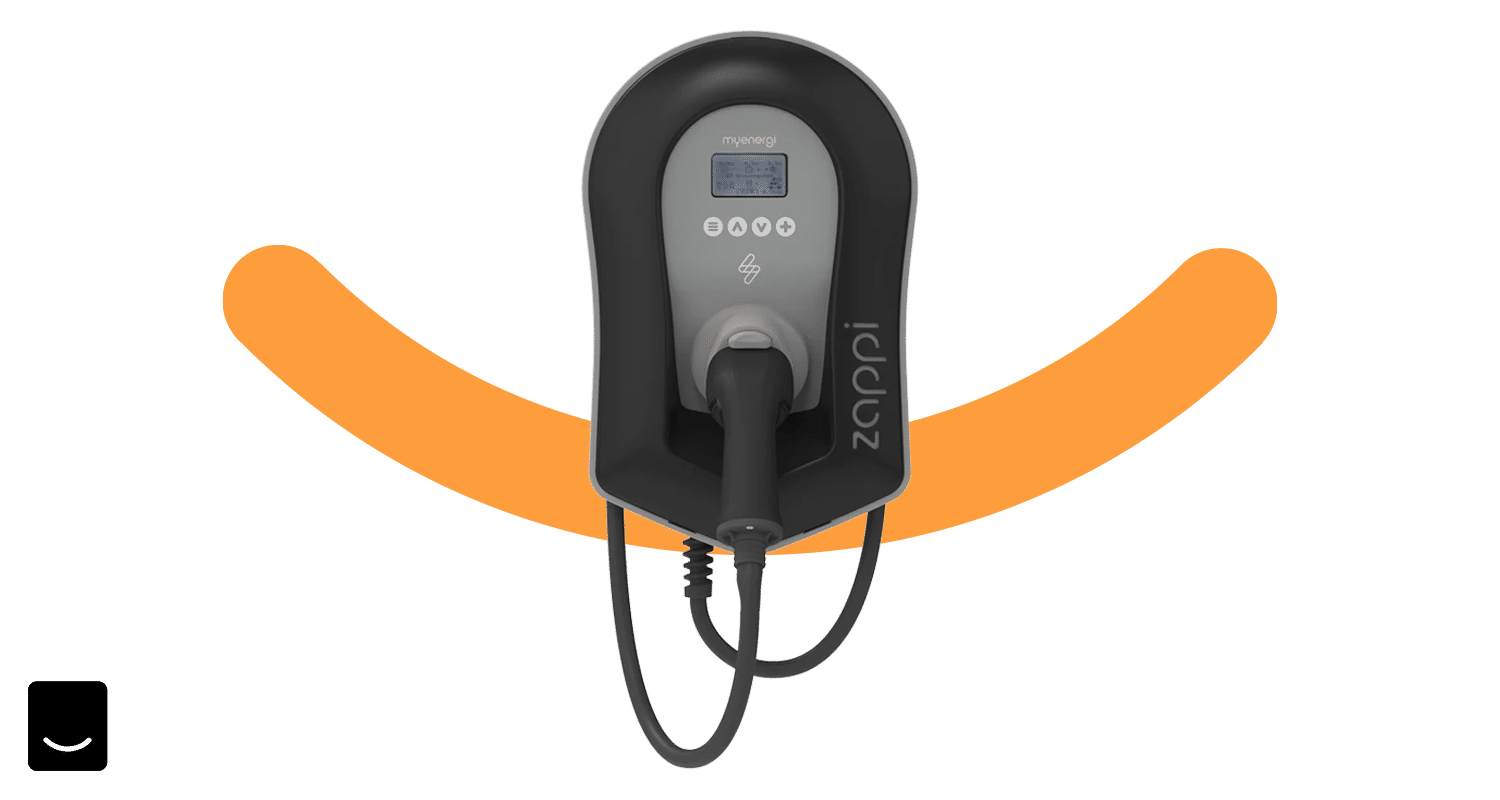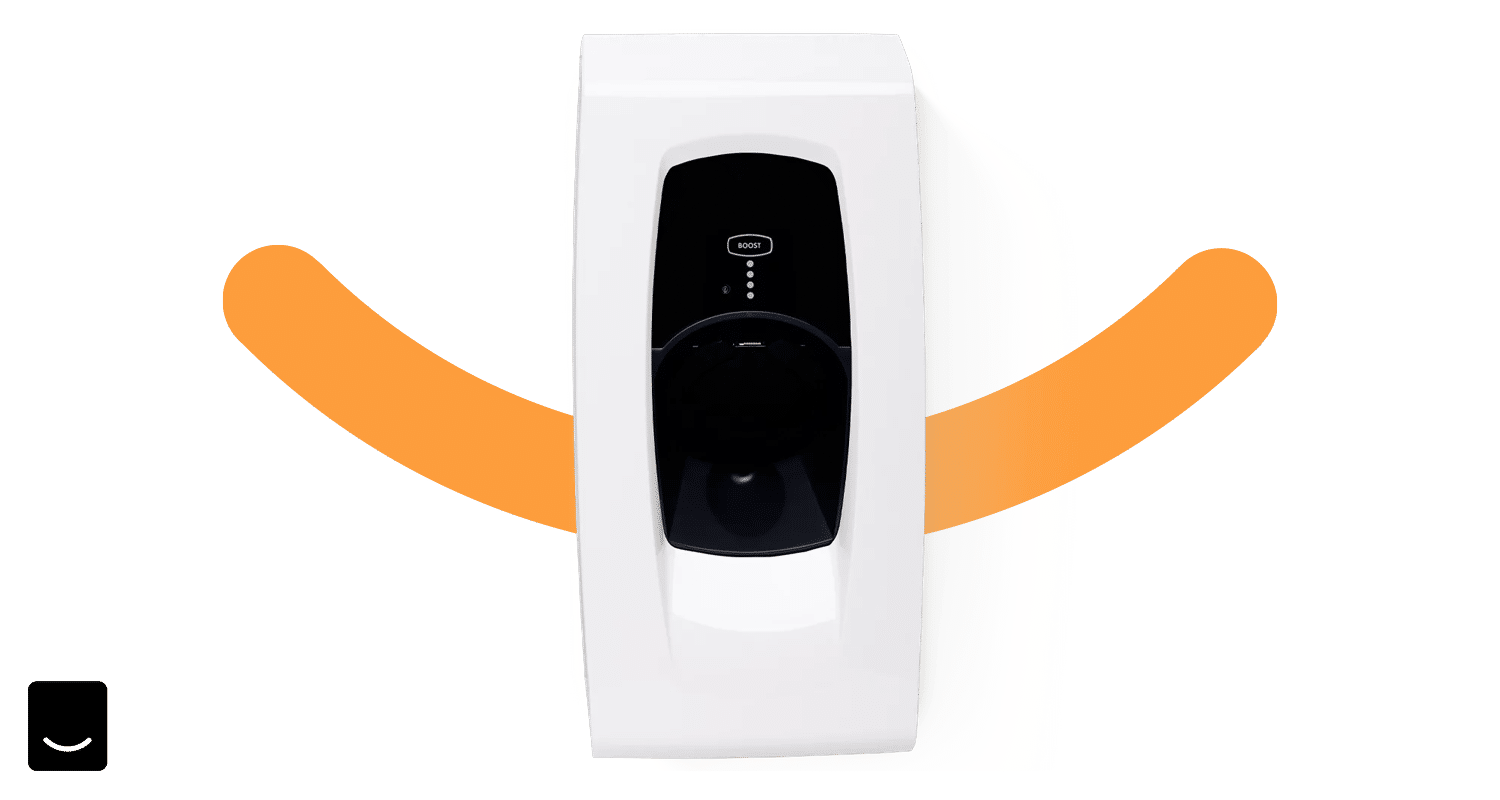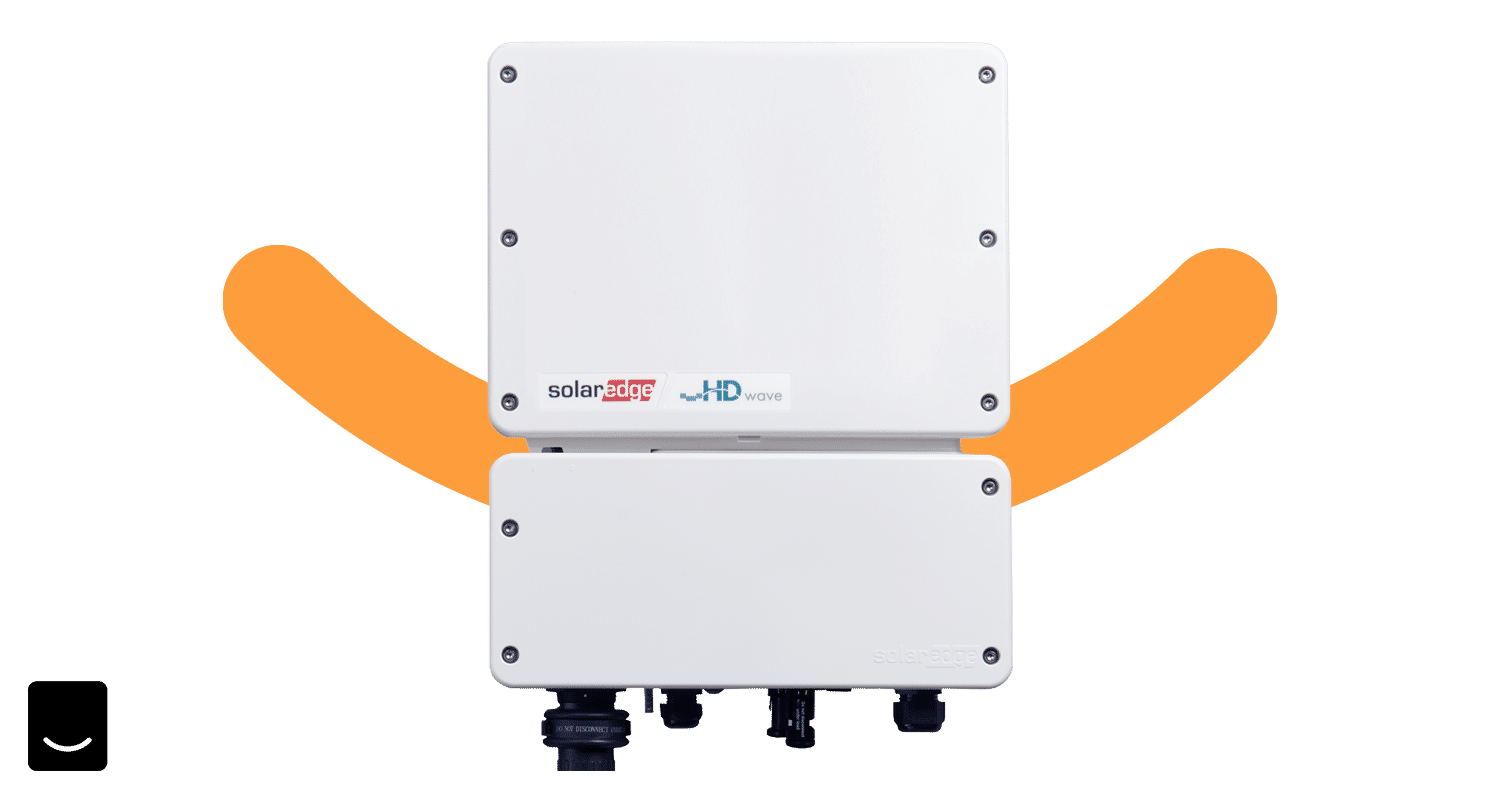Nobody searches for the worst EV chargers, do they? Here's the best.
With a growing interest in electric cars, many are wondering how they can hook them into their solar panels to charge them up with this free, clean energy. We can’t think of a better way to stick it to big oil.
So if you’re thinking of buying an EV in the future, you may want to consider a domestic EV charger that is solar-compatible.
In this guide, we’ll discuss what an EV charger + solar setup entails, before reviewing the very best EV chargers on the UK market.
Let’s go!
PS We offer MCS-certified solar panel installation nationwide. Simply answer these questions, get your fixed price and arrange your free design.
Best EV Chargers for Solar Panels Quick Summary:
Most EV chargers are solar compatible, but it's important to double-check.
Some EV chargers have this technology built-in, such as the My Energi Zappi charger.
Driving an electrical vehicle powered by solar is the prerequisite for a date with Greta Thunberg.
What is a Solar-Compatible EV Charger?
Electric vehicle charging involves using electric charging equipment to recharge your vehicle's battery. In layman’s terms: from now on, you’re getting your gas from your socket.
EV chargers that are solar-compatible may be powered via a solar panel array/system.
One of the key advantages of this is that it can lower (or even eliminate) your EV charging costs.
In other words, you could potentially run your EV for free (minus the cost of the solar installation and other product costs).
Even better, solar battery storage can be used to store energy for use overnight or for later use.
However, instead, you could simply charge your EV in the daytime while your solar array is actively generating electricity. It beats watching petrol prices steadily climb up.
But, out of all the solar-compatible EV chargers on the market, which ones are the best for those with solar panels?
How Did We Pick the Best EV Chargers?
Factors we considered when reviewing the best EV chargers for solar panels included the following:
Price-point of the charger.
Charging speed.
Tethered and untethered options.
The reputation of the brand.
Warranty length offered by the brand.
Awards and accolades.
Ease of installation.
Aesthetic design.
User interface and ease of use.
Any useful additional features.
We’d have considered bribes, but none of the companies below offered one.
Best EV Chargers for Solar Panels in the UK
#1 HyperVolt Home Pro 3 (Best)

The Hypervolt Home Pro 3 is a top-tier EV charger for UK homeowners seeking efficiency and innovation.
Key details:
Single-Phase Charging Speed: 7kW – Charges up to 20-25 miles per hour (e.g., full charge for a Tesla Model 3 in ~8-10 hours).
Type: Tethered, with a 5m cable (7.5m optional).
Approximate Cost: £900–£1,200.
Warranty Period: 3 years.
Standout Features:
Smart Connectivity: 4G and Wi-Fi enabled, plus Alexa voice control (e.g., “Alexa, start charging”).
Adjustable Lighting: Customise LED lights for practicality or ambience.
Safety: Built-in PEN fault protection eliminates the need for an earth rod, reducing electric shock risk.
Charging Modes:
Schedule Charge: Set times to match off-peak tariffs or solar use (e.g., midnight to 6 AM).
Plug and Charge: Starts charging instantly when plugged in.
The Hypervolt app offers a user-friendly interface for monitoring usage, setting schedules, and remote control—among the best available.
Considerations:
Tethered Only: No untethered option; 5m (or 7.5m) cable is fixed.
Size: Relatively large (approx. 12-15” tall, 8-10” wide)—ensure wall space.
Cost: Premium price, though justified by features.
Who It’s For:
Ideal for tech-savvy EV owners with solar setups or those wanting safety and flexibility, backed by a 3-year warranty.
#2 Tesla Wall Connector
Key details:
Single-phase Charging Speed: Up to 7.7kW (32 amps).
Three-phase Charging Speed: Up to 22kW (region-dependent).
Type: Tethered (up to 7.3m/24ft cable).
Approximate Cost: £500 to £700 (excluding installation).
Warranty period: 4 years (residential use).
The Tesla Wall Connector comes from, well, Tesla—the name that’s practically synonymous with electric vehicles. It’s a premium choice for UK EV owners, especially those already in the Tesla ecosystem.
Starting with the charging speed, this sleek unit delivers up to 7.7kW on a single-phase connection, perfect for most UK homes. If you’ve got three-phase power (and live somewhere it’s supported), it can ramp up to an impressive 22kW. Actual speeds depend on your car and setup, but rest assured—it’s fast. Just don’t expect it to turbocharge your driving skills.
This Wi-Fi-enabled charger is all about simplicity and power. It’s tethered with a generous 7.3-meter cable that’s easy to coil around its minimalist frame—think of it as a high-tech cable tidy. You can tweak settings via the Tesla app, scheduling charges for off-peak rates or syncing with solar if you’ve got a Powerwall. Choose between a steady charge or max power mode when you’re in a hurry—say, racing off to a last-minute meeting (or a futuristic getaway).
Built for indoor or outdoor use, it boasts an IP55 rating, meaning it’ll shrug off rain and dust—though it won’t survive a biblical flood. The 4-year warranty is a nice touch, outpacing many rivals.
Last but not least, the Tesla app ties it all together. It’s not going to win awards for pizzazz, but it’s slick, functional, and lets you monitor your charge from anywhere. Non-Tesla owners can use it too with an adapter, but it’s undeniably optimised for the Tesla crowd.
#3 Alpha ESS EV Charger
The Alpha ESS EV charger can work as a standalone charger but is compatible with the Alpha ESS battery storage system.
However, it’s worth noting that there is a major advantage to having an EV battery and charger from the same company - that being the fact you can prevent the EV charger from using stored energy and instead use excess energy generation from your solar system.
The unit also comes equipped with a 5-metre-long charging cable and access authorisation, which allows you to prevent unauthorised use of the charger via the Alpa app. This is especially useful if your charger is in an open space where other people may be able to access your unit.
Prefer video? Watch our YouTube review of the Alpha ESS EV charger below:
Key details:
Type: Available in tethered (5m cable) and untethered options
Approximate Cost: £400
Warranty Period: 2 years
The Alpha ESS EV Charger is developed by Alpha ESS, a prominent company in renewable energy and EV charging solutions.
Charging Speeds and Options
The Alpha ESS EV Charger offers the following charging configurations:
Single-phase charging: 7kW
Three-phase charging: 11kW
These options cater to various energy requirements and vehicle specifications.
Features and Benefits
This solar-compatible EV charger integrates seamlessly with renewable energy systems, enabling efficient use of solar power for charging your vehicle. Key features include:
Built-in Controls: Manage and customise your charging settings directly from the device.
Cable Management: The tethered model includes a 5-meter cable, providing flexibility and convenience in charging setup.
The Alpha ESS EV Charger is designed to combine functionality, sustainability, and premium performance, making it a top choice for eco-conscious EV drivers.
#4 Zappi Home Energy Charger

Key details:
Single-phase Charging Speed: 3.6kW or 7kW.
Three-phase Charging Speed: 11kW or 22kW.
Type: Tethered (5m) and untethered.
Approximate Cost: £1,000 to £2,000.
Warranty period: 3 years.
The brand behind this Zappi EV charger, Myenergi, is one of the top brands in the EV charging sector.
Starting with the charging speed, there are two options available. On the one hand, there is an option with a 7kW single-phase charging speed and a 22kW three-phase charging speed.
Alternatively, there is an edition of the Zappi Home Energy Charger with a 3.6kW single-phase charging speed and an 11kW three-phase charging speed.
Please note that charging speed does not correlate with your driving speed.
This solar-compatible EV charger comes with built-in controls, and a wide range of charging modes and the body can act as a cable tidy. As for the charging modes, there are ECO, ECO+ and FAST modes.
ECO sees the power adjusted to suit changes in household power generation. It will mix its charge between solar and the grid.
When it comes to ECO+, this mode will pause charging when it deems that too much of the power used has been taken from the grid.
This helps to limit the use of grid energy but will take longer to charge your vehicle. If you’re driving the getaway vehicle for your 1920s-style street gang, this isn’t the best option.
Lastly, the FAST-charging mode will charge your EV as fast as possible using either a combination of solar and grid energy or only grid energy, depending on what approach will work quickly. The charger also comes with three boost modes.
The Zappi Home Energy Charger can be mounted indoors or outdoors. It also comes with an IP65 level of protection, which makes it weatherproof (barring a tsunami).
The warranty offered with this product is 3 years.
Last but not least, this charger can be controlled remotely using the Myenergi app. This is not the best app on the market but does the job.
Still learning about solar panels? Explore our helpful guides on various topics, including solar panel grants, payback periods, the mechanics of solar energy, determining the number of panels you need, and solar car charging solutions.
#5 Indra Smart Pro

Key details:
Single-phase Charging Speed: 7.4kW.
Type: Tethered (5m) or untethered.
Approximate Cost: £800 to £1,100.
Warranty period: 3 years.
Next up we have the Smart Pro from Indra. This is a little cheaper and comes with a single-phase charging speed of 7.4kW.
The Indra Smart Pro comes with notable benefits including off-peak charging, smart scheduling and solar matching.
Moreover, by utilising tariff integration, it’s possible to set kilowatt-hour price caps. It’s like picking the maximum price for your petrol. This solar-compatible EV charger offers a 3-year warranty as standard.
The three charging modes are Smart Mode, Boost Mode and Home Alone Mode. The default charging mode offered with the Indra Smart Pro is Smart Mode.
This mode determines your charging schedule automatically each time you plug the charger into your EV.
It does so by using a combination of information related to your ‘charge by the time’, assuming that you’ve set one, and energy tariff. It’s called smart mode because you can stop thinking.
Next, there is Boost Mode. This mode overrides any schedules and settings. Instead, its purpose is to charge your vehicle as fast as it can.
Notably, you can turn the Boost Mode on and off as you wish via the app or directly on the Smart Pro charger.
Lastly, there is Home Alone Mode. This charging mode does not require any internet connectivity and thus does not use smart technology.
In-Home Alone Mode, the Indra Smart Pro functions like an ordinary socket. It simply provides electricity to your vehicle when plugged in. They decided against calling this the ‘dumb mode’.
With that said, it probably isn’t safe to literally leave your EV charging when you’re out and about and no one is home.
However, among the reasons it doesn’t top our list is the fact it’s not that visually seamless and it doesn’t come with Wi-Fi connectivity as standard.
Instead, it comes with ethernet only as standard. However, Wi-Fi and 4G may be added optionally.
#6 Walbox Pulsar Plus Home EV Charging Station

Key details:
Single-phase Charging Speed: 7.4kW.
Three-phase Charging Speed: 22kW.
Type: Tethered (5m).
Approximate Cost: £800 to £1,300.
Warranty period: 3 years.
Another solid choice is the Pulsar Plus Home EV Charging Station from Walbox.
With a maximum single-phase charging speed of 7.4kW and 22kW three-phase charging speed, this is one of the top options if you want your EV to power up quickly.
It is also relatively affordable.
Along with being compact, this Walbox EV charger comes with Bluetooth and Wi-Fi connectivity, Google Assistant and both Apple Watch and Android Wear compatibility. This much connectivity makes it a socket and a true gadget in one.
Moreover, it is well built, making it durable and requires no earth rod (due to in-built earthing protection). It comes with a three-year warranty with the possibility of extending it.
When it comes to the disadvantages, as with the Hypervolt Home 2.0, there is no untethered option.
What’s more, the app is arguably not the best and the LED halo ring cannot be dimmed.
#7 Solaredge 2 in 1 EV Charger Inverter

Key details:
Single-phase Charging Speed: 9.6kW.
Type: N/A.
Approximate Cost: £1,700 to £2,500.
Warranty period: 12 years.
Last but not least, another standout EV charger is Solaredge’s 2 in 1 EV Charger Inverter.
Of course, this product may or may not be for everyone but one of its key upsides is that it is a two-in-one unit.
Along with being able to charge an electric charger, this Solaredge product can be used to invert solar power. Inverting solar power doesn’t mean you change solar to fossil-fuel-powered energy, but it translates the DC currency from the solar panels to the AC currency your house needs.
If you have yet to have a solar array installed, you might want to consider this charger.
Just verify with the MCS-certified installer/installation company that it will be a good fit for the panels you wish to have installed.
Naturally, the Solaredge 2 in 1 EV Charger Inverter costs more than most EV chargers but if it’s a good fit it could offer solid value for money.
This charger inverter features a 12-year warranty as standard (which can be extended to 20-25 years).
You can also use it to schedule charging during off-peak hours to keep your costs down and/or track activity so that you get a visual sense of the product’s use.
All in all, if you want a 2-in-1 EV charger inverter, you should strongly consider this option from Solaredge. If you want a 2-in-1 EV charger converter from Solaredge, you really don’t have another choice.
Obviously one of the main downsides of this product is that it is more expensive, but again, can offer good value for money if it’s a well-suited choice for you.
When considering solar energy, it’s important to understand solar panel sizes and how they impact installation and energy output, as well as to stay informed with the latest solar statistics on the growing adoption of renewable energy in the UK.
Additionally, you might be eligible for solar panel grants that can help reduce installation costs, making solar more affordable. To ensure your system runs efficiently, proper cleaning of solar panels is key, while weighing up the pros and cons of solar power can help you make a well-informed decision about whether it’s the right choice for your home.
How to Choose the Right Solar-compatible EV Charger
Before all else, it’s important to be sure that an EV charger is a suitable match. This isn’t simply a matter of always swiping right in the hope that one of the chargers does the same.
For instance, you may require a three-phase charger rather than a single-phase option.
Another key requirement might be that you need a tethered or untethered EV charger.
Whatever the case, your key requirements must be considered first.
Next, you’ll need to look at which ones fall within your budget - or find a way to extend your budget, if you prefer.
Beyond that, it’s worth evaluating them based on your top priorities as a way to determine which one(s) offers the most value for money.
Whether your top priorities include customizability, charging speed or Wi-Fi connectivity, you can weigh your priorities with the cost as a way of narrowing down your options.
As discussed earlier, the EV charger can be installed by a suitable electrician or electrician company, while an MCS-certified installer is needed for solar installations.
Next Steps For Your Solar Journey:
When planning to install solar panels for your home, there are several important factors to consider. Make sure to refer to the following guides to help you make informed decisions:
To dive deeper into these topics, head over to our advice section, check out our YouTube channel for informative videos, or read a customer case study to see how others have benefited from their solar installation.
Get a Quote for Solar Today
Without boasting you should get your solar installed with us, here's why:
Thousands of Happy Customers: We boast an average score of 4.9 on Trustpilot, outperforming the market leader.
Which? Trusted Trader: Heatable is proudly recognised as a Which? Trusted Trader.
MCS Accredited: Our accreditation by the Microgeneration Certification Scheme (MCS) ensures high-quality standards.
Exclusive Panels: We offer REA Fusion solar panels, available only through Heatable.
Consumer Protection: As members of the HIES consumer code, we provide 2-year deposit protection.
Flexible Payment Options: Choose from multiple payment methods, including finance options.
Fixed Price Guarantee: Enjoy transparency with no hidden costs.
Save Your Quote: You can save your quote and decide later.
Bespoke Design Tool: Draw your own conclusion (literally) on whether solar is worth it for you, here.






